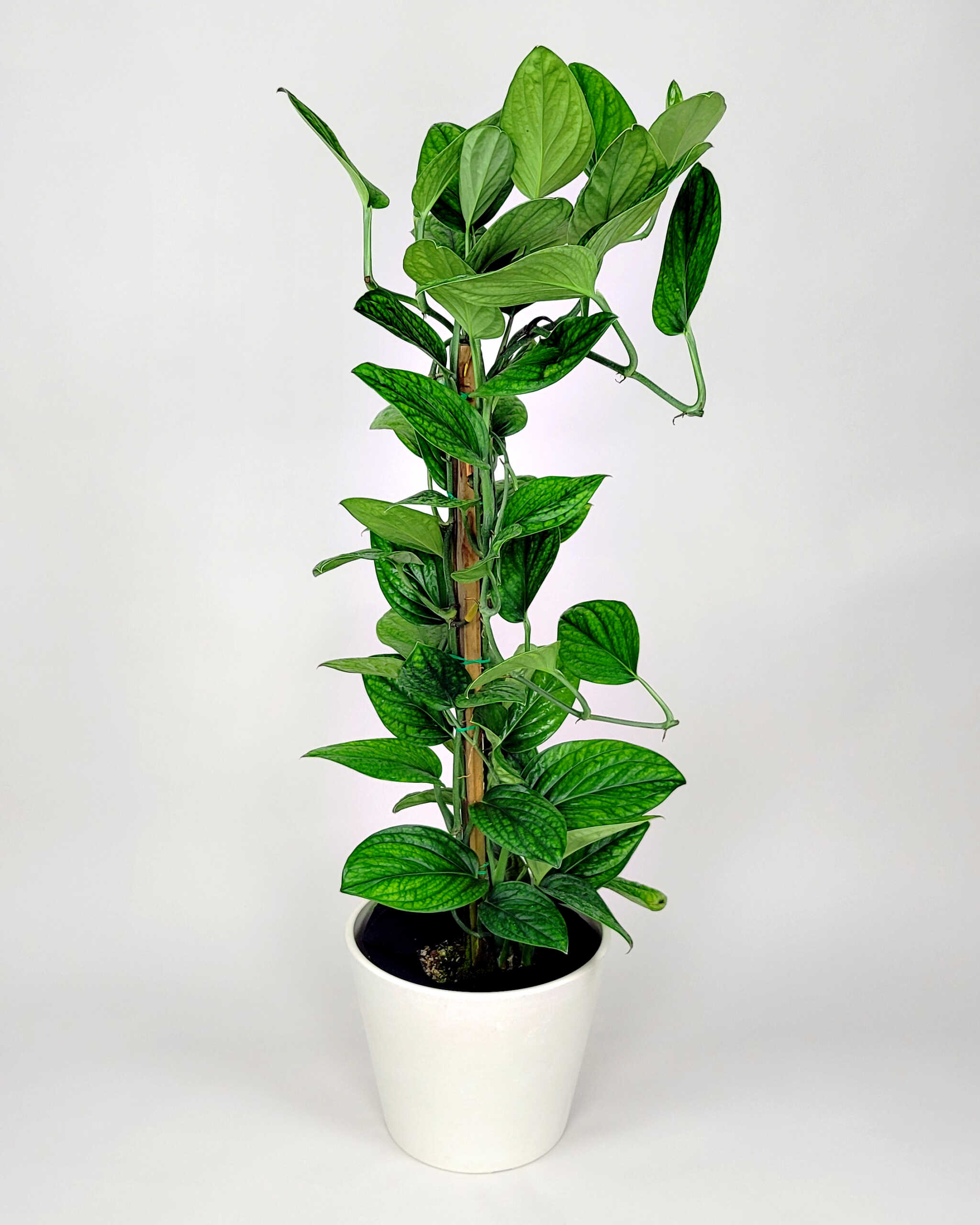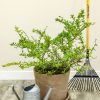Description
Turn your Living Space into a Virtual RainforestMonstera karstenianum ‘Peru’ is a captivating tropical plant that has gained popularity among indoor gardening enthusiasts. With its unique and intricate foliage, this cultivar stands out from other Monstera varieties. The leaves of ‘Peru’ display a beautiful mosaic pattern, featuring a mix of glossy green coloration and intricate fenestrations. Its compact size makes it ideal for smaller spaces or as a hanging plant. Whether as a statement piece or a conversation starter, Monstera karstenianum ‘Peru’ adds a touch of exotic beauty to any indoor plant collection.Caring for your Peruvian MonsteraMonstera karstenianum ‘Peru’ is a beautiful and exotic tropical plant that requires specific care to thrive in indoor environments. ‘Peru’ thrives in bright indirect light and prefers a well-draining soil mix. Regular watering and occasional misting help maintain its health and vigor. This Monstera is known for its relatively fast growth and may require occasional pruning to maintain its shape.Here are some tips for caring for Monstera karstenianum ‘Peru’.LightOne of the critical factors for the healthy growth of ‘Peru’ is the amount of light it receives. This plant prefers bright, indirect light, which mimics its natural habitat in tropical rainforests where it grows under the canopy of other trees. Too much direct sunlight can scorch the leaves, while too little light can result in stunted growth and a loss of the unique foliage pattern. To achieve the ideal lighting conditions, place the plant near a bright window, but avoid exposing it to direct sunlight. If your home has limited natural light, consider using artificial light sources such as grow lights.Temperature and humidityMonstera karstenianum ‘Peru’ thrives in warm, humid environments similar to its native habitat. The ideal temperature range for this plant is between 65°F to 80°F (18°C to 27°C). It is essential to avoid exposing the plant to sudden temperature fluctuations or cold drafts, which can cause stress and affect its growth. Humidity is another crucial factor to consider when caring for ‘Peru.’ These plants prefer a high humidity environment, with levels between 60% to 80%. If your home has low humidity levels, consider using a humidifier or placing a tray of water near the plant to increase moisture levels.WaterLike most tropical plants, Monstera karstenianum ‘Peru’ requires regular watering to maintain its health and vigor. The frequency of watering depends on various factors such as humidity levels, lighting, and temperature. Generally, it is best to water the plant when the top inch of soil feels dry to the touch. When watering, ensure that the water reaches the roots and flows through the drainage holes to avoid waterlogging, which can cause root rot. It is also essential to avoid letting the plant sit in standing water as this can cause damage to the roots. In addition, ‘Peru’ benefits from occasional misting to increase humidity levels and keep the foliage clean.SoilMonstera karstenianum ‘Peru’ prefers well-draining soil that retains moisture without becoming waterlogged. A good potting mix for this plant should be rich in organic matter and perlite or vermiculite to aid drainage. It is essential to avoid using heavy, compacted soil, as this can affect the plant’s growth and cause root rot. When repotting, choose a pot that is slightly larger than the current one and has drainage holes to allow excess water to escape. Fertilization is another crucial aspect of caring for ‘Peru.’ These plants benefit from regular feeding during the growing season, typically from spring to summer. A balanced liquid fertilizer that is high in nitrogen can promote healthy foliage growth, while a fertilizer that is high in phosphorus can encourage the development of fenestrations. Be sure to follow the instructions on the fertilizer package and avoid over-fertilization, which can damage the plant’s roots.Pruning and propagationMonstera karstenianum ‘Peru’ is known for its relatively fast growth and may require occasional pruning to maintain its shape and size. Pruning can also promote healthy growth and prevent the plant from becoming too leggy or top-heavy. When pruning, use sharp, sterile scissors or pruning shears to make clean cuts and avoid damaging the plant’s stem.





